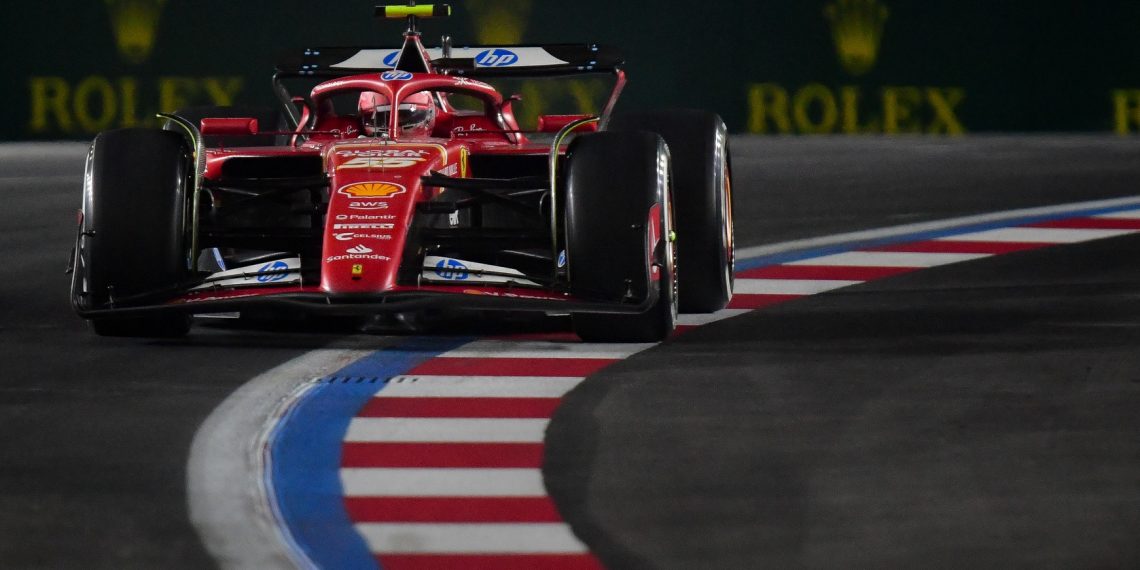Ferrari Team Principal Frederic Vasseur has revealed that the Scuderia suffered a significant budget cap setback after the FIA issued a last-minute technical directive ahead of the Las Vegas Grand Prix, forcing the team to redesign its skid blocks.
The directive targeted satellite skid blocks, a clever solution used by several teams to protect the plank on the underside of their cars while enabling lower ride heights for enhanced aerodynamic performance. Although initially deemed legal by the FIA, the design was banned following complaints from rival teams—most notably Red Bull—claiming it was an exploitation of the rules.
Ferrari’s Costly Adjustment
Ferrari, among the teams forced to make changes, had to overhaul its skid block design on short notice. While the update didn’t noticeably impact the Scuderia’s performance in Las Vegas, Vasseur highlighted the financial strain the directive placed on the team, stating it significantly ate into the budget cap.
“In terms of budget? Yes, a lot, because we had to redo all the skids,” Vasseur explained.
The timing of the directive—issued just a week before qualifying in Las Vegas—left teams scrambling to comply, with Ferrari bearing the brunt of the sudden expense. The budget cap constraints meant that funds allocated for skid changes could no longer be spent on performance upgrades, potentially costing Ferrari valuable ground in its fight with McLaren for second place in the Constructors’ Championship.
Ferrari ultimately fell short of McLaren by 14 points, a margin that could have been mitigated if the budget had been available for performance enhancements instead of last-minute compliance fixes.
Vasseur Criticizes FIA’s Timing
Vasseur didn’t shy away from expressing frustration at the FIA’s timing and approach to the directive, calling it “strange” given the governing body had previously confirmed Ferrari’s plank design was legal.
“We had also the confirmation before this that the plank was legal, from the FIA,” Vasseur stated. “It’s true that the TD came very late… but it is like it is. It’s not an excuse for [performance], but the approach was strange.”
Despite his criticism, Vasseur emphasized that Ferrari chose to avoid escalating the matter, instead prioritizing focus on the championship battle with McLaren.
A Strategic Distraction?
The timing of the directive and its origins have fueled speculation that it was strategically influenced by Red Bull, a team known for its meticulous attention to detail when interpreting the rules. While Vasseur chose not to engage in speculation, the controversy underscores the tightrope teams must walk under the budget cap era, where unexpected rule changes can have far-reaching consequences.
As Ferrari shifts its focus to 2025, the late-season disruption highlights the growing tension between innovation and regulation in modern Formula 1, and the Scuderia will be keen to avoid similar setbacks in its quest to return to title contention.










